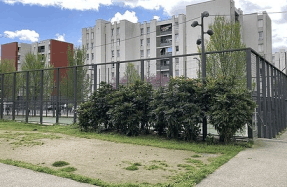Why Chief Justice Roberts is moving to the center of the court
There is a convention that U.S. Supreme Court history is described not in “eras” or “ages,” or even decades, but by chief justices. Think “the Marshall Court” and “the Brennan Court.”
Chief Justice John Roberts has never understood that convention. The chief doesn’t have that much more power than the other justices, he has said. Nevertheless, “the Roberts Court” has been the shorthand since his confirmation in 2005.
Years from now, 2019 may be seen as the court term when that moniker starts to reflect the reality.
When Justice Brett Kavanaugh replaced the retired Justice Anthony Kennedy this term, Chief Justice Roberts became the court’s new ideological center, or “swing vote” when justices are deadlocked. And, observers say, there are some signs that the conservative chief justice is becoming more willing to join his more liberal colleagues
Guarding institutional integrityThe Marshall ModelMore oscillation ahead?You’re reading a preview, subscribe to read more.
Start your free 30 days



